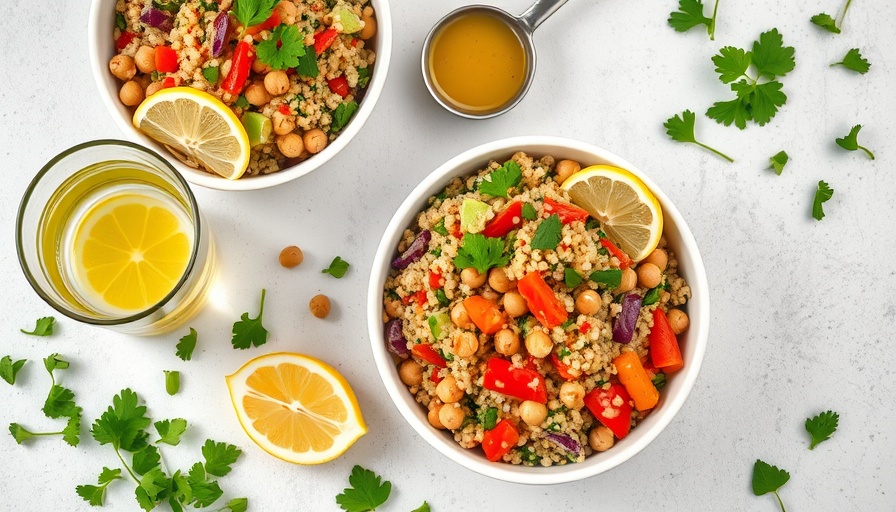
The Link Between Dietary Diversity and Overeating
Dietary diversity plays a pivotal role in shaping our eating behaviors and overall health. As we explore the connection between dietary diversity and overeating, it's crucial to consider how a varied diet influences cravings, portion control, and the choices we make each day. A well-rounded nutrition strategy not only promotes healthier eating habits but can also be the key to longevity.
In 'Dietary Diversity and Overeating,' the discussion dives into the importance of varying our diets to promote better health, which inspired this deeper analysis on the topic.
Understanding Dietary Diversity: Why Is It Important?
Dietary diversity refers to the variety of foods consumed within a dietary pattern. Incorporating a wide array of fruits, vegetables, whole grains, and proteins can provide essential nutrients needed for optimal cellular health. Research indicates that a diverse diet can prevent nutritional deficiencies and promote a balanced microbiome—all critical components for longevity and life extension.
The Science Behind Overeating: What Research Shows
Studies suggest that when we limit our diet's diversity, it can lead to overeating. This is often due to an imbalance of nutrients that our body craves when it lacks variety. When people consume monotonous diets, they may be more likely to feel unsatisfied, prompting overeating in search of missing flavors and nutrients. By enhancing the diversity of our diets, we may find ourselves more satisfied and less likely to overindulge.
Practical Tips for Increasing Dietary Diversity
1. Experiment with New Ingredients: Introduce different colors and types of fruits and vegetables into your meals. Don’t be afraid to try recipes that feature unfamiliar foods.
2. Explore New Cuisines: Different cultures often use unique combinations of ingredients. This not only adds diversity but can also introduce key nutrients beneficial for cellular and overall health.
3. Mix Up Your Proteins: Vary between plant-based proteins like legumes and nuts, as well as lean meats or fish. This not only enhances flavor but provides different amino acids crucial for muscle repair and health.
Dietary Diversity as a Biohacking Strategy
If you're looking to maximize longevity and healthspan, consider dietary diversity as a biohacking strategy. It’s a personalized approach where you tweak your eating habits to optimize your body’s performance and recovery. Diverse diets rich in antioxidants and vitamins can amplify our body’s defenses against age-related decline.
Counterarguments: The Case for Minimalism in Diets
While enhancing dietary diversity is widely supported, some argue that minimalistic diets can yield health benefits too. There's a growing trend towards simplicity in eating, focusing on less processed foods and repetitive meals to boost productivity and mental clarity. Yet, the challenge remains that long-term adherence to a minimal diet can lead to boredom and nutrient deficits.
Future Predictions: The Evolving Landscape of Nutrition Research
As research into nutrition continues to evolve, we are likely to see more personalized approaches gaining traction. Integrative strategies that consider individual health needs, genetics, and lifestyle will become increasingly important in dietary recommendations. This tailored approach not only optimizes health but may lead to breakthroughs in disease prevention and aging research.
Conclusion: Embrace Variety for Better Health
In conclusion, embracing dietary diversity is an empowering step toward better health, longevity, and overall wellness. By diversifying what we eat, we can boost our nutrient intake, curb overeating, and enhance our satisfaction with meals. To dive deeper into the science-backed health tips and strategies that promote healthy living, consider seeking resources and expert insights that align with your health goals.
Ultimately, our dietary choices matter. The path to longevity, cellular health, and an enriching life begins with what we put on our plates. Let's make those choices count!
 Add Row
Add Row  Add
Add 




Write A Comment